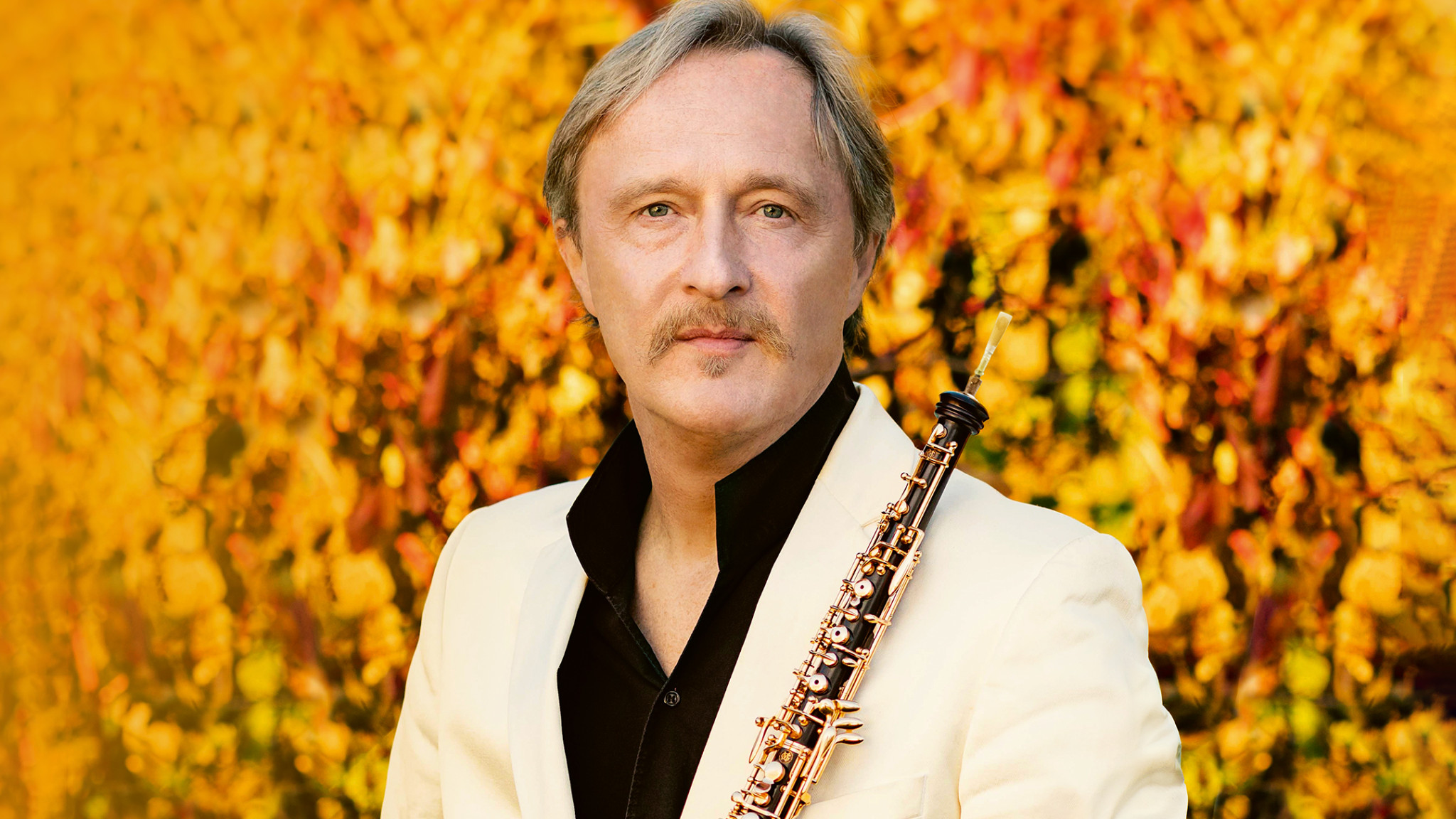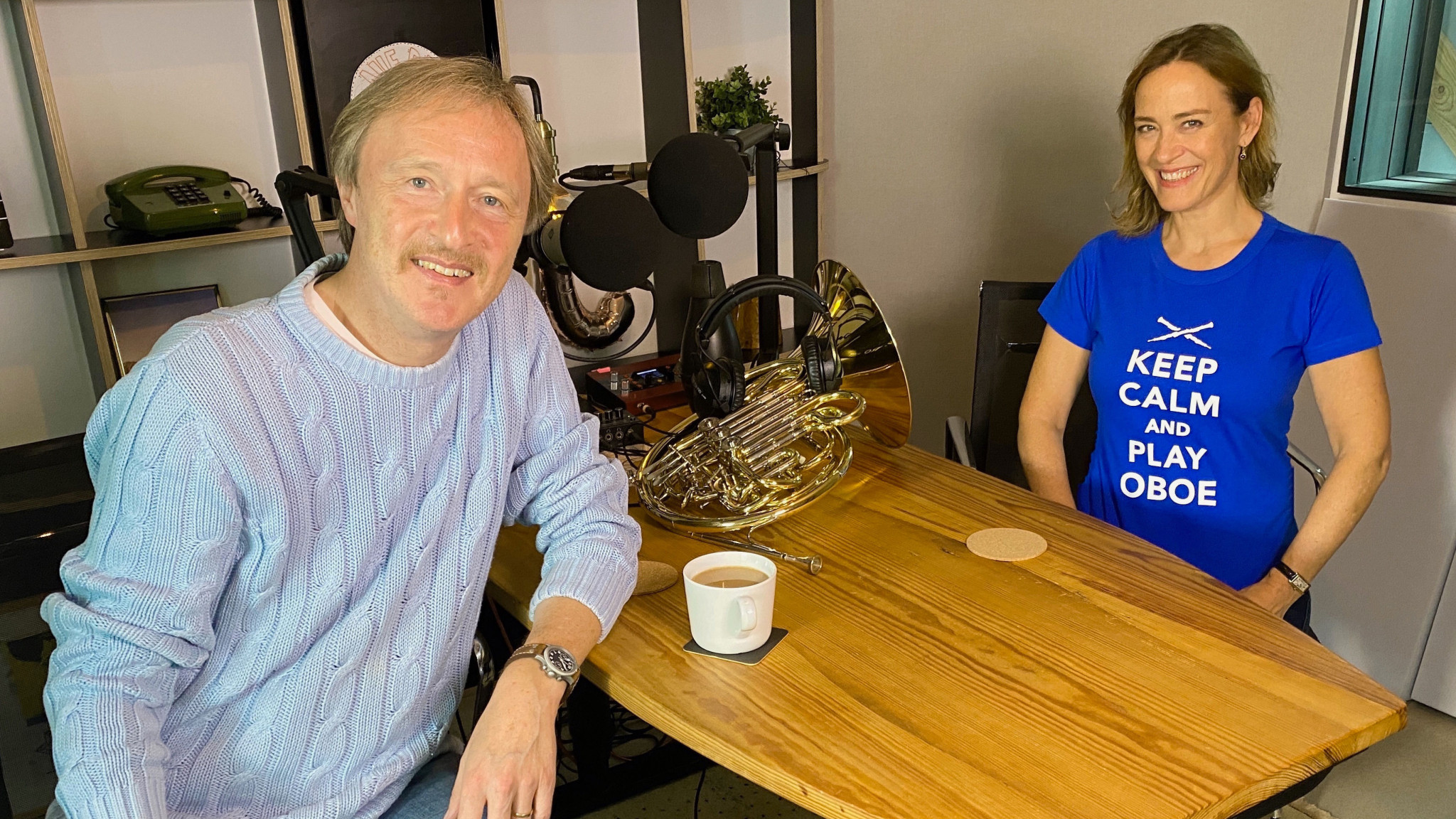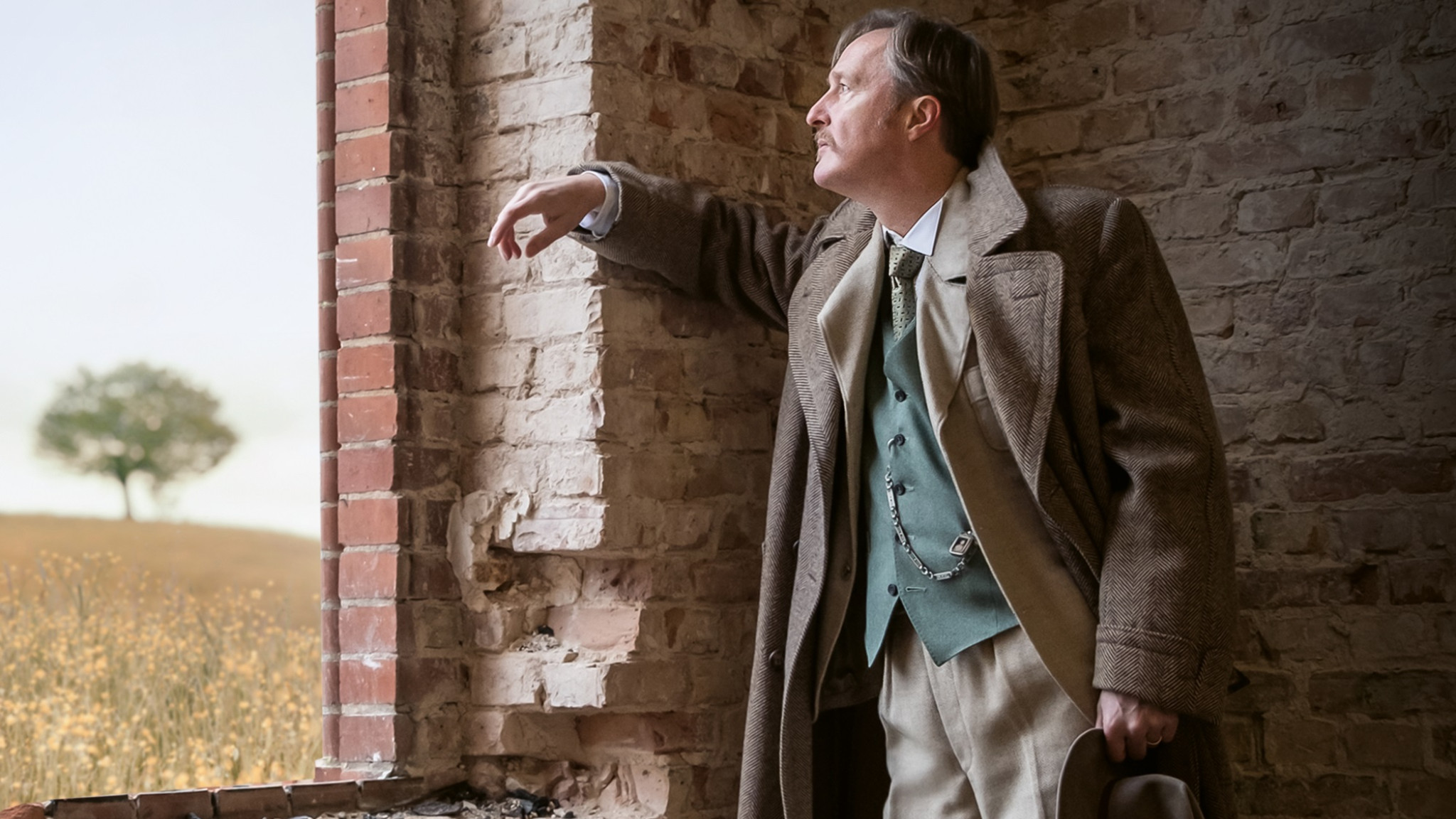Albrecht Mayer presents his first all-Mozart album

We announce the release of star oboist Albrecht Mayer’s latest album, inspired by his lifelong love for the music of Mozart and featuring a world premiere recording and several new arrangements of Mozart’s most famous pieces. Mayer’s album is made in partnership with the Deutsche Kammerphilharmonie Bremen and harpsichordist Vital Julian Frey and will be released 9 April 2021. Its tracklist features a B flat major version of the Concerto for flute and harp, K. 299 (297c) arranged for oboe and harpsichord, and a transcription of Exsultate, jubilate, K. 165 (158a) for oboe d’amore, orchestra and organ. Also included are arrangements of the concert arias Non temer, amato bene, K.505 and Ah se in ciel, benigne stelle, K.538, the Rondo in C major, K.373 and the motet Ave verum corpus, K.618.
To coincide with the pre-order start today, we present a fantastic DG Stage concert with Albrecht Mayer playing Bach and Vivaldi, premiering today, 8 January 2021, 8PM (CET).
Listen to the first pre-release track Mozart: Ave verum corpus, K. 618 (Arr. Spindler for English Horn, Strings and Organ) now!
Albrecht Mayer has lived with Mozart’s music for almost half a century. His encounters with the composer began while he was a boy soprano in the Bamberg Cathedral Choir and have multiplied over the course of his international career. The 55-year-old German oboist has waited until now, however, to record his first all-Mozart album, a personal and affectionate tribute to one of the greatest composers who ever lived. Mozart, set for release by Deutsche Grammophon on 9 April 2021, comprises six works arranged for oboe, oboe d’amore or English horn together with a specially commissioned completion of the fragmentary Oboe Concerto in F major, K 293 (416f).
The album Mozart was inspired in part by the oboist’s experience of watching his young daughter exploring music on the piano, improvising and even composing pieces herself. Like the infant Mozart, she was immersed in her father’s music-making long before she spoke her first word. “I’ve been gripped by the deep desire to record this album,” observes Mayer. “For, just like my daughter, Mozart also grew up with a musician as father. And, like her, each day he was accompanied from morning to evening by the musical presence of his father, Leopold Mozart.”
The central idea behind Mayer’s new album emerged while he was contemplating the power of music to unlock a child’s innate creativity. “I thought that if I ever had the chance to meet Signore Mozart, I would ask him to write some concertos for my instrument,” he recalls. “Mozart wrote the most beautiful tunes, many of them for soprano or violin. I thought now was the time to have these arranged for oboe. The album’s working title was Del Signore Mozart, which implies that Mozart could have written these pieces for oboe in another dimension, another life. I find these tunes very soothing. At a stressful moment, on a stressful day, under the influence of any hardship, this music can be extremely comforting.”
Mayer invited seasoned arranger Matthias Spindler to transform several of Mozart’s most lyrical works for oboe. He also enlisted his friend the Swiss composer Gotthard Odermatt to complete the sixty-one-bar fragment of the F major Oboe Concerto with what Mayer describes as “a deep bow” to Mozart. “It was a very easy task to work with Matthias and Gotthard,” he notes. “They’re fantastic guys and brilliant at the things they do. And the Kammerphilharmonie Bremen is without doubt one of the best chamber orchestras in the world. My expectations were extremely high, but when we worked with them they took us to a new peak, to a new Elysium, to paradise. What they offered us in melodic lines, in kindness, in playing skills was so beautiful. They were very flexible regarding my wishes and working with them was pure joy.”
One of the project’s most joyful moments came courtesy of Ave verum corpus, a short motet written for the feast of Corpus Christi in June 1791 just six months before its composer’s death. “Ave verum corpus is one of Mozart’s most famous pieces,” Mayer observes. “I’ve known it for forty-eight years, since I sang it with the Bamberger Symphoniker when I was a second soprano with the Bamberger Domchor, the boys’ choir of Bamberg Cathedral. It’s not even four minutes long but it’s full of the most exquisite lines. In Matthias Spindler’s arrangement for English horn, strings and organ, we have one of the most soothing of all tunes. It’s like a little night music, sung by the baritone voice of the English horn.”
Nobody knows for sure why Mozart abandoned his Oboe Concerto in F major, of which only the orchestral opening and soloist’s first eleven bars survive in the composer’s hand. There is no doubt, however, about the quality of the existing music. Albrecht Mayer recorded a reconstruction based on the fragment sixteen years ago with the Mahler Chamber Orchestra and Claudio Abbado but decided the work needed a fresh approach for his latest album. For eighteen months he worked closely with Gotthard Odermatt, helping the latter refine his thoughts on how Mozart might have completed the composition’s first movement while fashioning his own cadenza.
“I’m very happy with the result,” the oboist concludes. “Mozart’s heavenly works have been literally imposing themselves on me for many years … Although I have been carrying most of the pieces on this album within me since my early youth, only now do I feel ready for their extreme emotional profundity. My time for and with Wolfgang Amadeus Mozart has come.”




